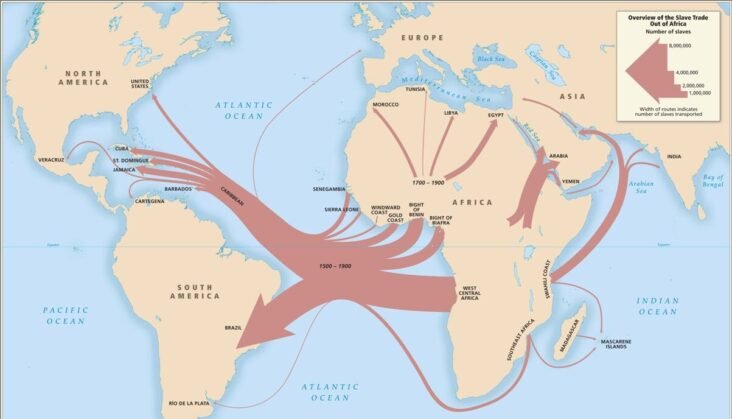[ad_1]
Today, 23 August, marks UNESCO’s International Day for the Remembrance of the Slave Trade and its Abolition. Britain, although involved in the transatlantic slave trade for over two centuries, does not have a national memorial day to commemorate the lives sold and lost.
In 1988, the United Nations Educational, Scientific and Cultural Organisation (UNESCO) chose 23 August to remember the horrors of the slave trade, which last for over 400 years with over 15 million African victims. It was started by the Portuguese in the 15th century.
It started in Haiti, and then other countries followed suit. Some nations have their own separate days, such as 10 May in France, the national day for commemorating the abolition of slavery. This televised ceremony is always attended by the president and the president of the senate.
However, Britain still has no national ceremony.
Why this date?
Toussaint L’Ouverture was the leader of the slave revolt in French Saint-Domingue that led to the Haitian Revolution, which lasted for 13 years until the former colony gained independence from France in 1804. The first uprising was from the night of 22 August until the morning of 23 August.
Britain and the transatlantic slave trade
Britain was involved in the transatlantic slave trade for over two centuries, until abolition legislation was drawn up on 25 March 1807. However, the Slavery Abolition Act was not introduced until 1833, and 1 August 1834 is known as Emancipation Day, thus the date when slavery officially ended.
The country then spent 40% of its national budget – £20m ($25m) at the time which is around £1.3bn ($1.5bn) today – to buy freedom for all slaves in the empire, however the money was given to slave owners as compensation, not to slaves.
What has Britain done to acknowledge its role?
Race expert Kehinde Andrews is calling for a ‘national memorial’ for the slave trade in the UK. He says: “If you think about just how important slavery was to Britain and how horrific it was, it should be a national memorial; there should be a day off. There was really nothing more important to Britain’s development than slavery.”
Some national institutions and cities in the country have taken proactive steps. The Bank of England has publicly acknowledged its role in the slave trade and recently hosted an exhibition about the ties between slavery and the City of London. The Church of England has also launched an investigation into the part it played.
Today, London City Hall will be hosting its fifth conference in line with UNESCO’s international day. This year’s theme is decolonisation, and speakers include Mayor of London Sadiq Khan and the Deputy Mayor for Communities and Social Justice, Debbie Weekes-Bernard.
However, many in Britain today believe that the national government should be more involved in acknowledging and taking responsibility for the damage done during the slave trade.
Understand Africa’s tomorrow… today
We believe that Africa is poorly represented, and badly under-estimated. Beyond the vast opportunity manifest in African markets, we highlight people who make a difference; leaders turning the tide, youth driving change, and an indefatigable business community. That is what we believe will change the continent, and that is what we report on. With hard-hitting investigations, innovative analysis and deep dives into countries and sectors, The Africa Report delivers the insight you need.
[ad_2]
Source link
